Health
Surprising Symptoms Of Vitamin D Deficiency

Vitamin D are fat-soluble compounds that have numerous nutritional benefits for you.. When you suffer from vitamin D deficiency, your muscles and bones are adversely affected. Because the symptoms of vitamin D deficiency are similar to other ailments, it’s difficult to know. Here are some surprising signs that you lack enough vitamin D.

Fatigue and Tiredness
It’s not uncommon to be tired after a busy day’s work or travel ; however, if it continues after some days, it could be low in vitamin D. You could limit your work and have extended rest to reduce the amount of fatigue. Moreover, taking some vitamin D supplements could help you become more agile.
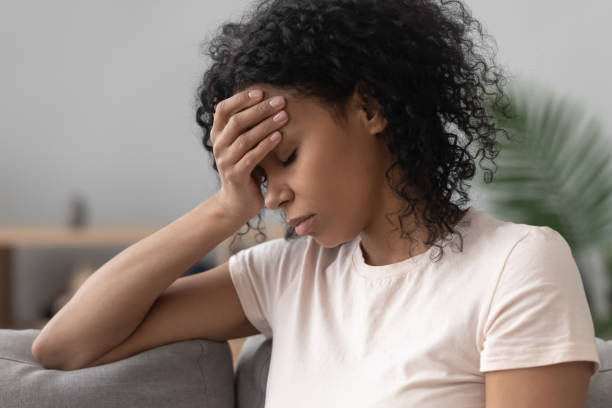
Recurring Illness
Are you experiencing an illness that keeps coming back l, it could be lack of vitamin D . There have been links showing people with low amounts of vitamin D suffering from repetitive illness. If you find yourself in this situation, talking to your doctor could be ideal.

General Body and Muscle Pain
One of the nutrients that your body needs is vitamin D. People who experience frequent back and muscle pain, could be suffering from low vitamin D. While pain relief drugs can be helpful, taking vitamin D supplements and food rich in vitamin D is recommended.
Read Also : 5 Expert – Approved Tips to a Leaner You

Bone Fracture and Osteoporosis
People need vitamin D to help strengthen bone structure. Bone structure helps grow bones, which will make you strong enough to carry out your tasks. However, low vitamin D can cause osteomalacia in most adults, which can lead to soft bones.
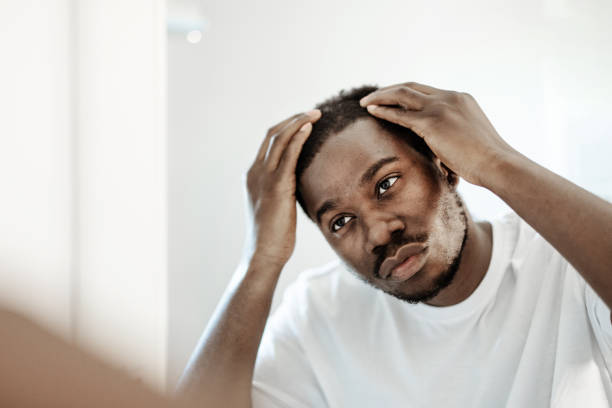
Hair Loss
While hair loss is generally linked with old age, vitamin D deficiency can also cause it. This is because vitamin D helps regulate the hair cycle and promotes the growth of new hair. In medical spaces, alopecia is a health disorder that leads to hair loss. Those with this condition should take foods rich in vitamin D.
Depression
Various factors cause depression, and they include loss of job, and illness. . However, some research has proven that vitamin D deficiency is one of the reasons why people are depressed. People who are depressed have shown remarkable improvement when they increase their vitamin D intake.
Bottom Line
Vitamin D nutrient supports nerves, muscles and general body health. Low vitamin D can lead to depression, tiredness and frequent illness. You can conduct a blood test to know if you are suffering from vitamin D deficiency, and when it comes out positive, ask your doctor what to take to improve your vitamin D levels.
Health
Workout Routines That Support Bones Health

Strong bones depend on more than just calcium or supplements. Research shows that bones respond to physical stress: when muscles and weight-bearing activities challenge the skeleton, bone tissue becomes denser and stronger. To protect skeletal health over the long term, exercise should combine weight-bearing activity, resistance training, and balance work. Together, these exercises address the main risk factors for fractures: low bone density, weak muscles, and poor coordination.

Photo Credit – Google
Weight-bearing activity doesn’t need to be extreme to be effective. Regular brisk walking around neighbourhoods or local parks strengthens hips, legs, and spine, while climbing stairs or light jogging improves lower-body density. Dance classes, including Afrobeat or traditional Nigerian dances, provide varied movement patterns that engage muscles and improve coordination. Starting with 15–20 minutes per session, three to five days a week, and gradually increasing intensity or duration can deliver measurable benefits.
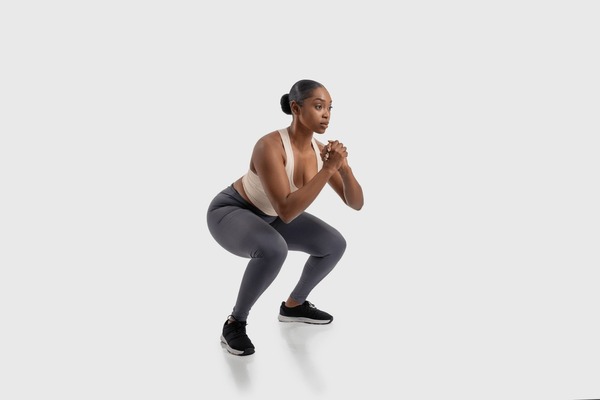
Photo Credit – Google
Resistance training plays a key role in maintaining strong bones. Gradually increasing weight or resistance helps muscles and bones adapt. Exercises such as squats and deadlifts target the hips, thighs, and spine, while lunges and step-ups build strength in the lower body and promote functional movement. Push-ups, pull-ups, and shoulder presses strengthen the upper body and spine. Two to three sessions per week covering all major muscle groups are sufficient. Free weights, resistance bands, or bodyweight exercises can all be effective depending on what equipment is available.
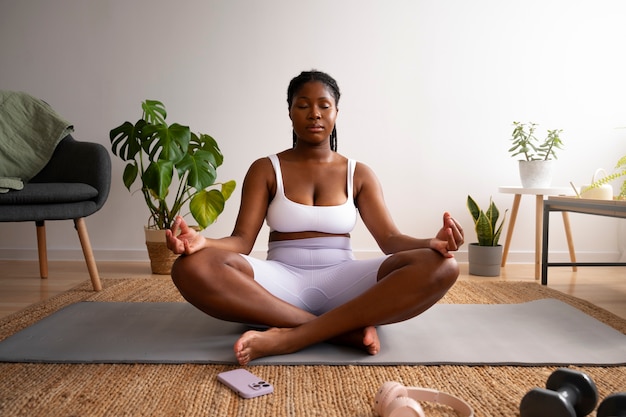
Photo Credit – Google
Balance is equally important because falls are a leading cause of fractures. Single-leg stands and heel-to-toe walking improve stability and coordination, while yoga, Tai Chi, or mobility exercises enhance control and complement other workouts. Integrating balance with strength and weight-bearing exercises provides a complete approach to bone health.
Common mistakes include relying solely on low-impact cardio such as swimming or cycling, which has little effect on bone density, and attempting high-impact exercises without preparation, which can increase injury risk. Effective routines should be planned, progressive, and performed consistently to build resilience safely.

Photo Credit – Google
A sample weekly schedule could include strength-focused exercises on Monday, such as squats or step-ups, deadlifts or hip-hinge movements, and push-ups or shoulder presses. Wednesday could focus on weight-bearing activity and balance through brisk walks, single-leg and heel-to-toe drills, and light dynamic movements. Friday can target functional strength with lunges or carries using household objects, core stability exercises, and stretching or yoga. This cycle can be repeated weekly, increasing load or complexity gradually.
Strong bones require intentional, evidence-based exercise. By combining weight-bearing activity, resistance training, and balance work, Nigerians can maintain bone density, reduce fracture risk, and improve overall skeletal resilience. Starting at your current fitness level, increasing load progressively, and including balance exercises will help protect bones for the long term.
Health
Disordered Eating Vs. Eating Disorder: Experts Explain The Differences And When To Seek Help
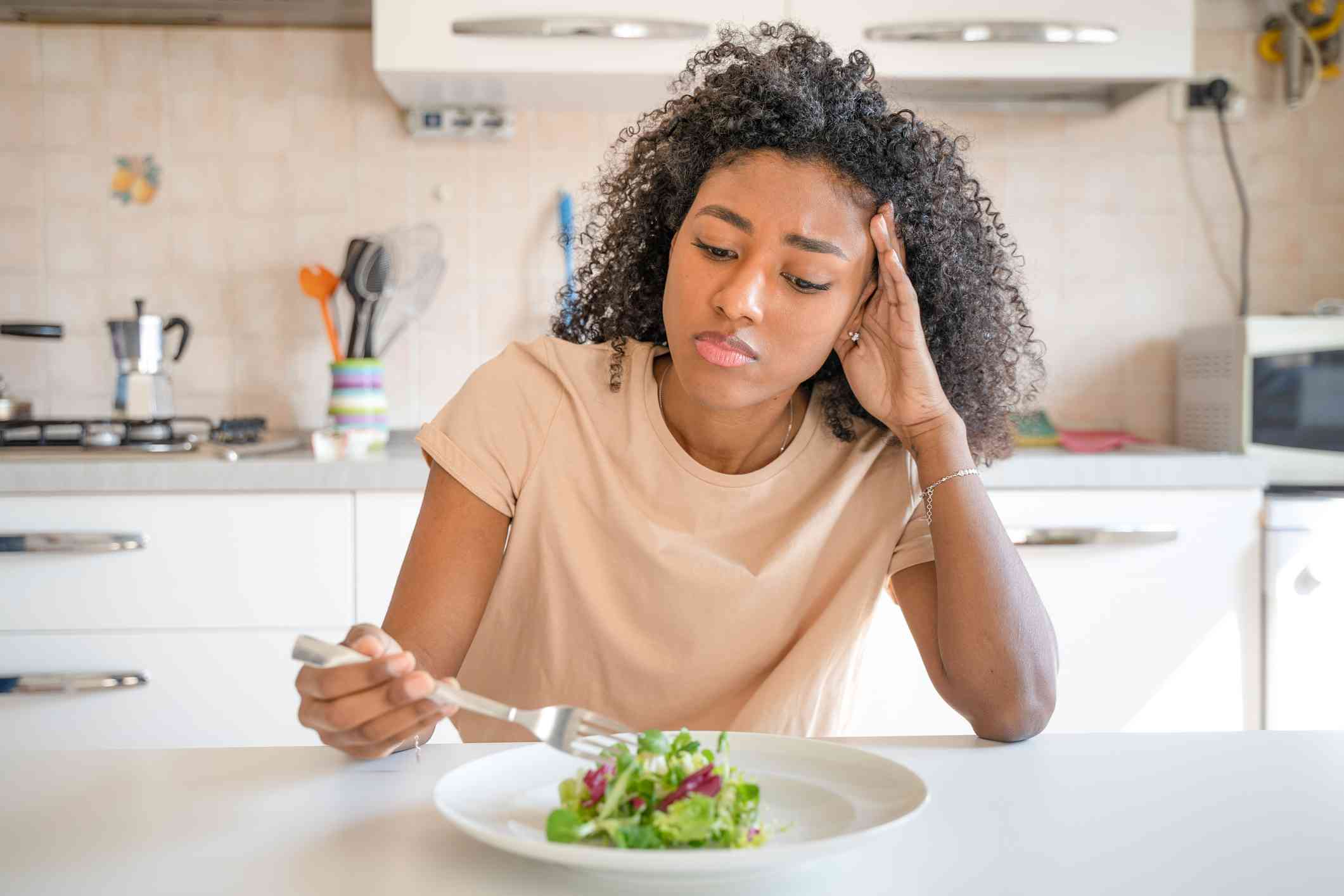
Disordered eating and clinical eating disorders are not interchangeable. Disordered eating refers to irregular or emotionally influenced habits around food: chronic dieting, skipping meals, rigid food rules, occasional binge episodes or persistent preoccupation with calories, weight or body shape. These habits may shift, but when repeated over time they often point to growing vulnerability.
Clinical eating disorders, by contrast, are diagnosed mental-health or medical conditions marked by persistent, patterned behaviours that impair physical health, mental wellbeing or daily functioning. Conditions such as anorexia nervosa, bulimia nervosa, binge‑eating disorder and other specified feeding or eating disorders fall into this category.

Image: Google
Evidence from Nigerian research confirms that disordered eating attitudes and risk for eating disorders are present among young adults and adolescents. In a study of more than 1,050 undergraduates from two higher‑education institutions in Lagos, roughly 16 percent scored positive on the EAT‑26 screening tool for disordered eating attitudes.
At a university in Ile‑Ife, a survey of female undergraduates found that 17.1 percent were classified as at high risk for eating disorders, based on the same screening instrument.
A more recent analysis among female undergraduates in Lagos found a lower prevalence of disordered eating (about 5 percent). Still, the study flagged a strong association between body-image dissatisfaction, body‑mass index (BMI) and disordered eating attitudes.
Adolescents are not exempt: a survey of 13 to 19-year-olds in Ibadan used screening tools to assess disordered eating behaviours and feeding/eating disorders. Results showed that 28.2 percent exhibited disordered eating behaviours, and a significant portion also met screening criteria for feeding/eating disorders.

Image credit: Google
Clinical, clearly diagnosed cases have also been documented. There’s a recorded instance of a 20-year-old undergraduate at a Nigerian university diagnosed with anorexia nervosa showing that what may start as dieting or food anxiety can escalate into serious health and psychiatric risk.
Because disordered eating and eating disorders exist within the Nigerian context, distinguishing between them matters. Persistent preoccupation with food, weight or body shape; regular dieting, bingeing or purging; emotional distress tied to eating; and disruption of everyday life are all red flags. When those signs persist, seeking professional support whether nutritional counselling, psychological therapy or medical care becomes essential.
Health
The Exercise That Keeps You Younger

If you’ve ever met someone in their fifties who moves like they’re still in their twenties, it’s likely they’ve discovered the simple habit that keeps the body from giving in to age: regular movement.

While fitness trends keep changing, one form of exercise has stayed constant in its benefits: strength training. It’s not about building bulky muscles or chasing a perfect body. It’s about keeping your bones strong, your joints stable, and your metabolism from slowing down. After the age of 30, the body naturally begins to lose muscle each year. That’s why everyday tasks, like climbing stairs or carrying groceries, start to feel heavier. Strength training helps reverse that.

Research supports this claim. People who lift weights or engage in resistance exercises have lower risks of diabetes, heart disease, and cognitive decline. But beyond the science, it’s about how it makes you feel. Nigerians juggling work, traffic, and family life know how draining each day can be. Even short sessions of body-weight squats, lunges, or push-ups a few times a week can recharge you better than most expensive wellness fads.

It also boosts your mood. Physical activity releases chemicals that help clear mental fog and lift your energy. It’s your body’s way of proving it still has strength to give.
You don’t need a gym to start. A mat, a pair of dumbbells, or even two water bottles will do. The goal is to stay consistent, to keep your body active enough to stay responsive.
Each push, lift, or stretch is a reminder that staying young isn’t about denying age; it’s about moving through it with strength.
-

 Celebrity Style4 months ago
Celebrity Style4 months agoMercy Aigbe Keeps it Sharp in Ivory Dress
-

 Celebrity Style4 months ago
Celebrity Style4 months agoBella Okagbue Puts a Spin on Feminine Suiting
-

 Fashion4 months ago
Fashion4 months agoTeminikan Experiments with Geometry in a Woven Mini
-

 Lagos Fashion Week3 months ago
Lagos Fashion Week3 months agoLagos Fashion Week’s Earthshot Prize Win Highlights a Changing Direction in African Fashion Production
-

 Beauty5 months ago
Beauty5 months agoMust Adapt Beauty Routine for Woman Above 25
-

 Fashion5 months ago
Fashion5 months agoAmina Cocoa Just Made the Two-Piece Too Easy
-

 Celebrity Style3 months ago
Celebrity Style3 months agoDiadem Okojie Perfects Polka Dots
-

 Celebrity News4 months ago
Celebrity News4 months agoBurna Boy Commands the Spirit Tunnel on The Jennifer Hudson Show
-

 Celebrity Style3 months ago
Celebrity Style3 months agoChioma Ikokwu Wears Lanre DaSilva Ajayi’s SS26 Couture at the Designer’s 20-Year Celebration
-

 Celebrity Style5 months ago
Celebrity Style5 months agoGINGERRR’ Premiere Went Full Peaky Blinders
















